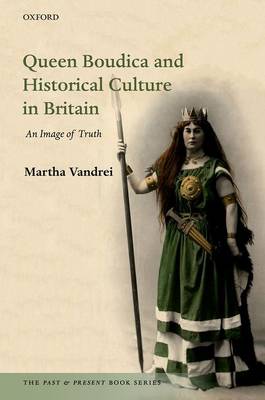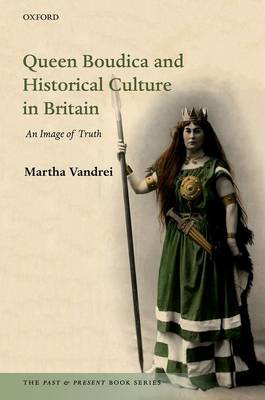
- Retrait gratuit dans votre magasin Club
- 7.000.000 titres dans notre catalogue
- Payer en toute sécurité
- Toujours un magasin près de chez vous
- Retrait gratuit dans votre magasin Club
- 7.000.0000 titres dans notre catalogue
- Payer en toute sécurité
- Toujours un magasin près de chez vous
131,45 €
+ 262 points
Description
Taking a long chronological view and a wide-ranging, interdisciplinary approach, this is an innovative and distinctive book. It is the definitive work on the posthumous reputation of the ever-popular warrior queen of the Iceni, Queen Boadicea/Boudica, exploring her presence in British historical discourse, from the early-modern rediscovery of the works of Tacitus to the first historical films of the early twentieth century. In doing so, the book seeks to demonstrate the continuity and persistence of historical ideas across time and throughout a variety of media. This focus on continuity leads into an examination of the nature of history as a cultural phenomenon and the implications this has for our own conceptions of history and its role in culture more generally. While providing contemporary contextual readings of Boudica's representations, Martha Vandrei also explores the unique nature of historical ideas as durable cultural phenomena, articulated by very different individuals
over time, all of whom were nevertheless engaged in the creative process of making history. Thus this study presents a challenge to the axioms of cultural history, new historicism, and other mainstays of twentieth- and twenty-first- century historical scholarship. It shows how, long before professional historians sought to monopolise historical practice, audiences encountered visions of past ages created by antiquaries, playwrights, poets, novelists, and artists, all of which engaged with, articulated, and even defined the meaning of "historical truth". This book argues that these individual depictions, variable audience reactions, and the abiding notion of history as truth constitute the substance of historical culture.
over time, all of whom were nevertheless engaged in the creative process of making history. Thus this study presents a challenge to the axioms of cultural history, new historicism, and other mainstays of twentieth- and twenty-first- century historical scholarship. It shows how, long before professional historians sought to monopolise historical practice, audiences encountered visions of past ages created by antiquaries, playwrights, poets, novelists, and artists, all of which engaged with, articulated, and even defined the meaning of "historical truth". This book argues that these individual depictions, variable audience reactions, and the abiding notion of history as truth constitute the substance of historical culture.
Spécifications
Parties prenantes
- Auteur(s) :
- Editeur:
Contenu
- Nombre de pages :
- 256
- Langue:
- Anglais
- Collection :
Caractéristiques
- EAN:
- 9780198816720
- Date de parution :
- 21-08-18
- Format:
- Livre relié
- Format numérique:
- Genaaid
- Dimensions :
- 236 mm x 157 mm
- Poids :
- 539 g

Les avis
Nous publions uniquement les avis qui respectent les conditions requises. Consultez nos conditions pour les avis.






